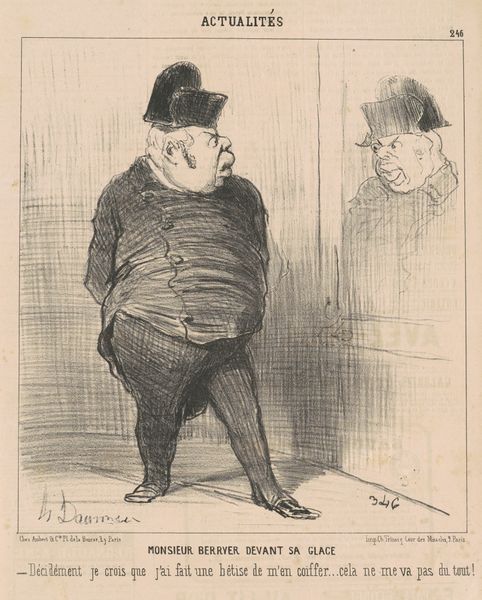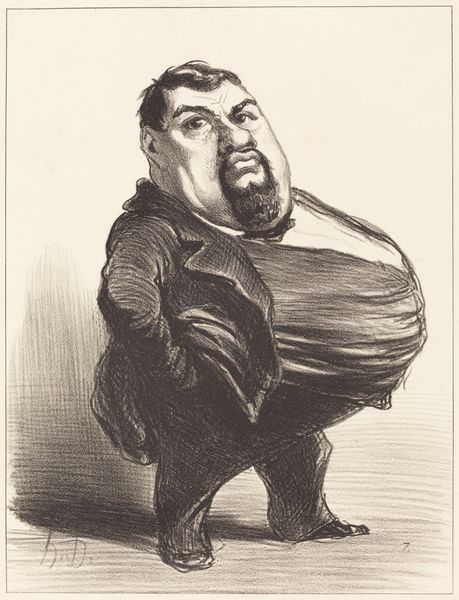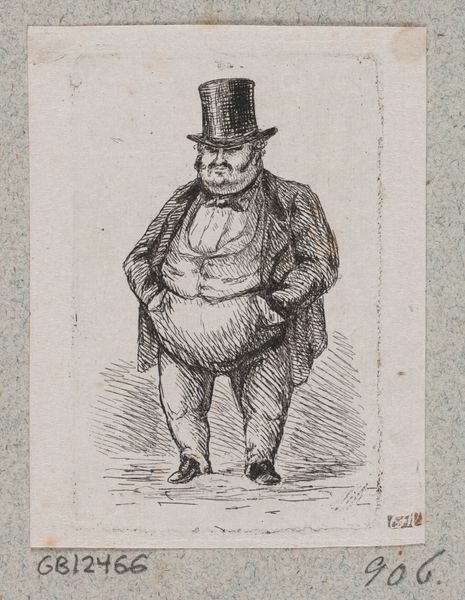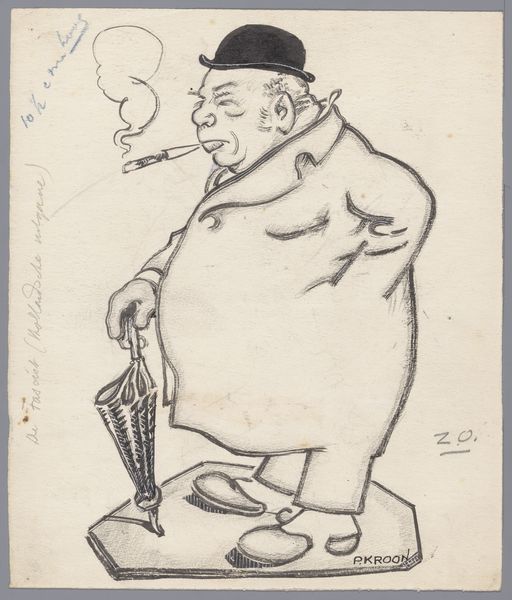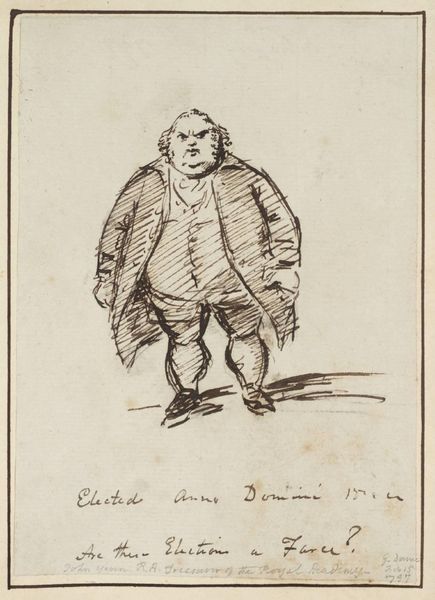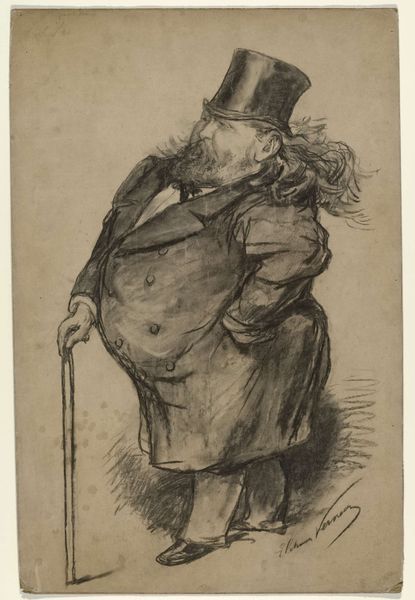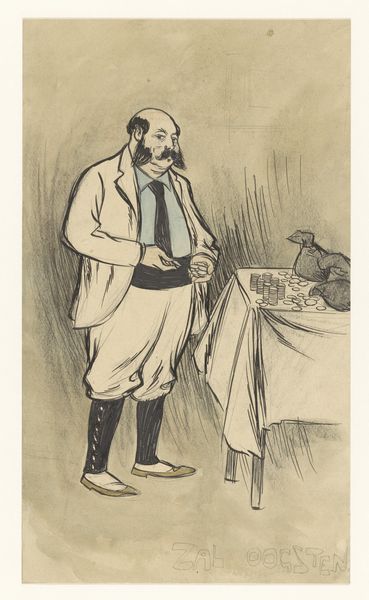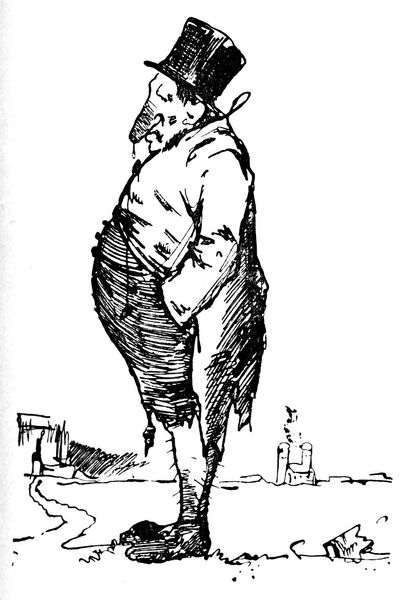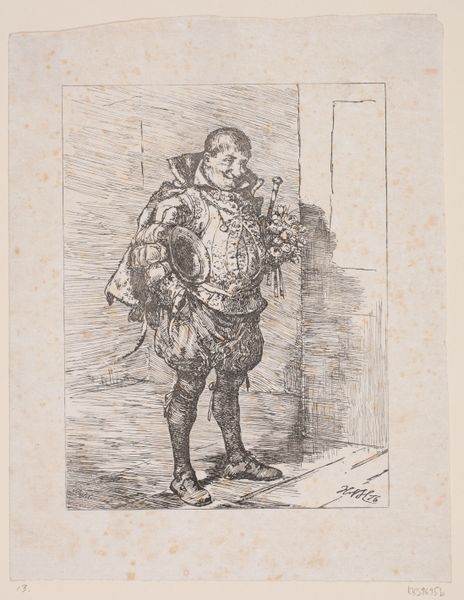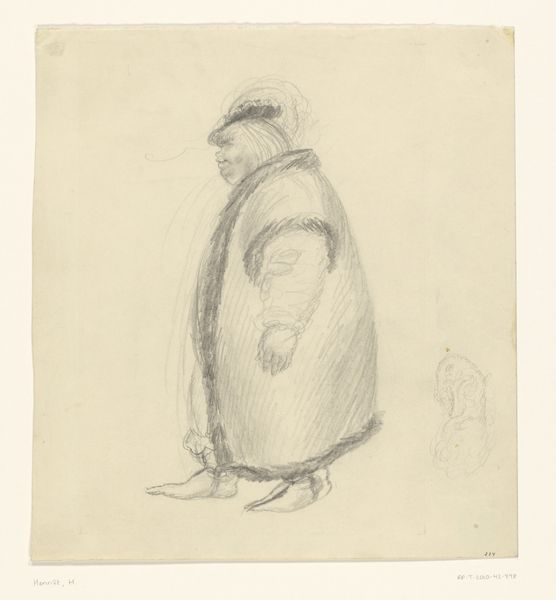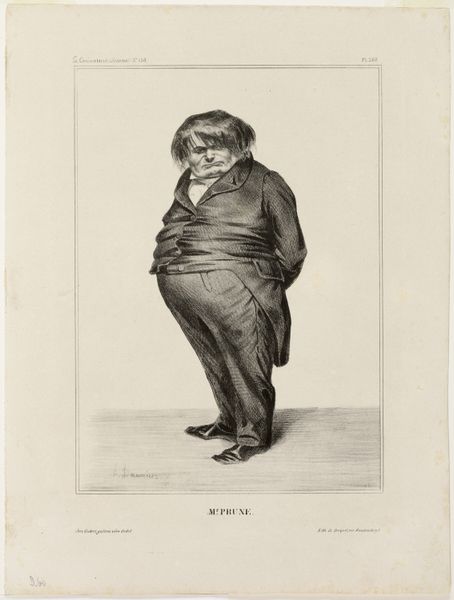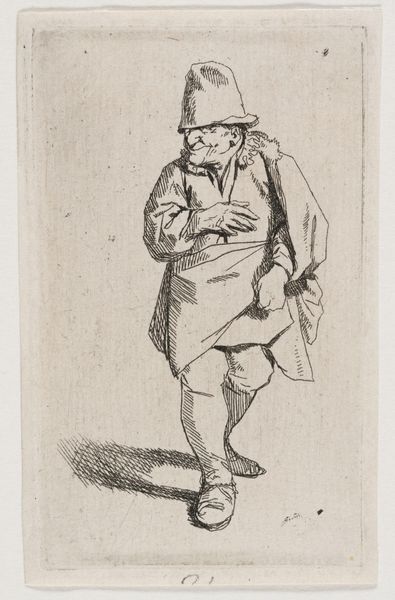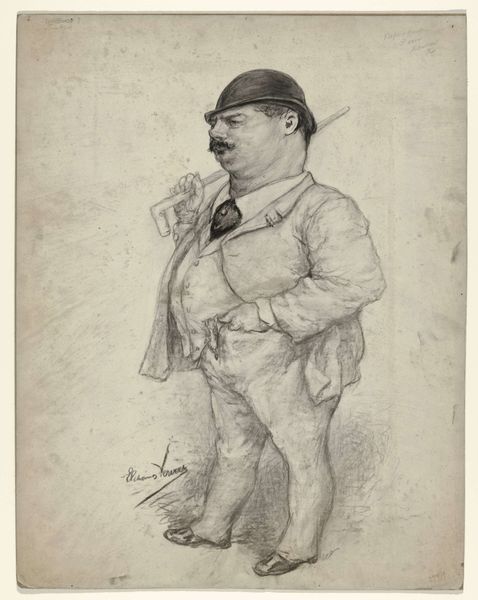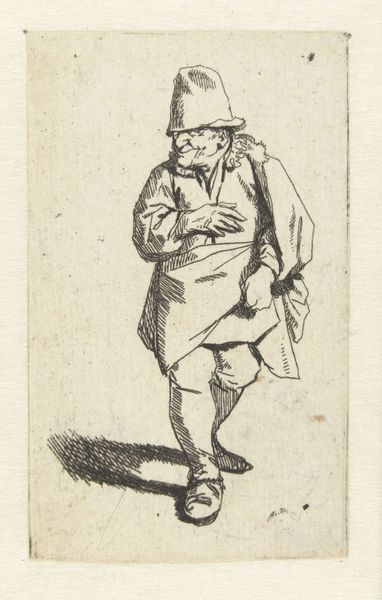
drawing, coloured-pencil, print, paper, watercolor, ink, graphite
#
portrait
#
drawing
#
coloured-pencil
# print
#
caricature
#
paper
#
watercolor
#
ink
#
coloured pencil
#
england
#
romanticism
#
graphite
#
genre-painting
Dimensions: 318 × 259 mm
Copyright: Public Domain
Curator: This is John Leech’s "Our Butcher," created around 1840, employing graphite, ink, and watercolor, along with colored pencil, on paper. Editor: My initial impression is that of a darkly humorous take on wealth and labor; he seems both imposing and strangely vulnerable sitting there. What’s with that crumpled newspaper at his feet? Curator: It is The Times! Look closer. It’s strategically placed to comment on the political and economic climate that affects his butcher business. The rising cost of living perhaps forcing him to raise his prices, despite public perception. The inscription beneath confirms as much. Editor: And the material realities of his trade—those hanging price signs in the background and the very prominent riding crop and gloves point to the class pretensions enabled by it. It is a subtle rendering of newly minted wealth. His corpulence becomes symbolic. Curator: Precisely. The roundness isn't merely physical, it critiques the era’s societal shifts. Think of Romanticism clashing with industrial reality, viewed through a lens that acknowledges class disparity. Editor: I appreciate how Leech used caricature, it amplifies those tensions. The watercolor wash, in contrast, feels delicate. Note that it is applied loosely and offsets the sharpness of the ink. The materiality and execution speak of speed, the need to rapidly capture an ever-shifting social landscape. Curator: Absolutely. His identity, performative, shaped by economic realities, social expectation and access—it's relevant even today as it comments on commodity prices and societal expectations. Editor: Analyzing it in terms of labor and materiality makes me rethink its initial lightness. There’s a deeper commentary on how power is constructed and sustained. Curator: Indeed. Considering "Our Butcher" within its historical frame makes us contemplate what it truly means to 'own' prosperity.
Comments
No comments
Be the first to comment and join the conversation on the ultimate creative platform.
